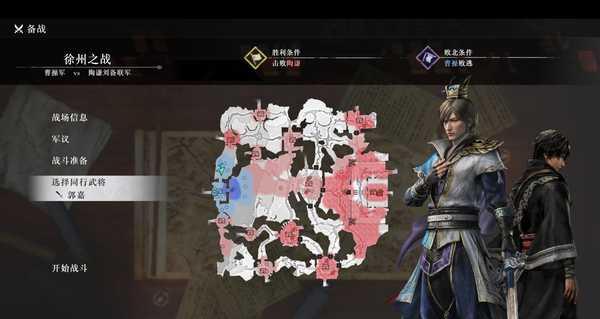The Epic Duel in Dynasty Warriors: Origins
An emotional analysis of player experiences in Dynasty Warriors: Origins, focusing on the pivotal duel with Lu Bu at Hu Lao Gate and the complex relationship between the protagonist and Guo Jia, revealing how gameplay mechanics and narrative choices create both thrilling and frustrating moments.

Dynasty Warriors: Origins delivers an intense gaming experience that reaches its emotional peak during several key moments. The game’s narrative weaves together personal relationships and epic battles, creating deeply engaging scenarios that can both excite and frustrate players.
The relationship between the protagonist and Guo Jia stands as one of the game’s most compelling elements. Their partnership in the northern campaign demonstrates how the game balances character development with tactical gameplay. However, the restrictions in the northern route can lead to frustrating moments, especially when players find themselves caught between following Guo Jia’s guidance and pursuing their own strategic choices.
The game’s combat system presents both opportunities and challenges. The Wind Spirit Moon Shadow ability and dual blade weapons offer exciting combat possibilities, but their implementation can sometimes lead to unintended consequences. Players often find themselves accidentally triggering horse mounting commands during crucial battles, creating moments of frustration that can disrupt the flow of combat.
Perhaps the most memorable and emotionally charged sequence occurs during the confrontation with Lu Bu at Hu Lao Gate. This iconic battle showcases the game’s ability to create truly epic moments, with the massive battlefield serving as a perfect stage for the legendary duel. However, the encounter can also become a source of frustration due to the intricate timing requirements and complex combat mechanics.
The game’s narrative reaches its emotional crescendo during personal interactions between characters. The relationship dynamics, particularly those involving acts of betrayal and sacrifice, add layers of complexity to what might otherwise be simple hack-and-slash gameplay. These moments force players to confront the emotional weight of their choices while managing challenging combat scenarios.
The development team’s attention to historical detail enhances the experience, particularly in their recreation of ancient Chinese warfare and architecture. The massive scale of Hu Lao Gate and the intricate design of Luoyang create an immersive atmosphere that makes players feel like genuine participants in these historical events.
The game’s strategic elements add depth to the experience, requiring players to balance immediate tactical decisions with longer-term campaign objectives. This creates engaging gameplay that goes beyond simple combat, though it can sometimes lead to challenging situations where player choice feels artificially limited.
Players often find themselves torn between following the game’s strategic guidance and pursuing their own tactical instincts. This tension creates memorable moments that challenge both gaming skills and strategic thinking, though it can occasionally result in frustrating scenarios where neither approach seems fully satisfying.
The game effectively captures the chaos and grandeur of Three Kingdoms era warfare while maintaining focus on personal stories and relationships. This combination creates an engaging experience that resonates with players on multiple levels, even when certain mechanics or difficulty spikes create moments of frustration.
While the game occasionally struggles with balancing player freedom against narrative constraints, it ultimately delivers an emotionally engaging experience that captures the epic scale and personal drama of its historical setting. These elements combine to create memorable moments that stay with players long after they complete their campaigns.